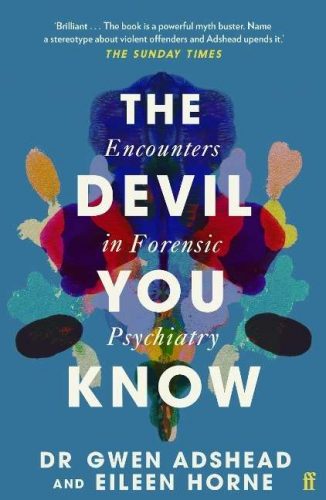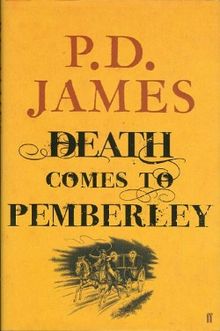
‘We are more alike than different.’
This is the essence of Dr Adshead’s argument: that while it is easier to write off certain criminals as monsters, it is essential to admit their humanity and recognise the value of rehabilitation over our instinctive desire for vengeance. Of course, this is easier said than done, but Dr Adshead, described in the blurb as, ‘one of Britain’s leading forensic psychologists’, brings thirty years of experience to the task.
What’s it about?
This is a fascinating account of 12 real life cases (although technically, these are actually composites of various cases, adjusted to ensure doctor-patient confidentiality is maintained) where Dr Adshead has been involved with patients who we might be tempted to write off as monsters – as something disturbing but ultimately ‘other’, inhuman and monstrous.
Murderers, arsonists, stalkers and child sex offenders have all experienced the benefit of Dr Adshead’s calm focus on their offence and their experience of it, helping them to begin to come to terms with their new identity. After all, as one prisoner notes, ‘you can be an ex-bus driver, but you can’t be an ex-murderer’. Accepting what they did and why is a crucial part of any attempt at rehabilitation, though as Adshead’s accounts show, not all offenders are able to take these vital steps.
Loosely, the book’s structure follows Dr Adshead’s career path as she becomes more experienced and moves between stints at Broadmoor, in various prisons and more community based roles, but the final chapter (which is newly added since the book’s original publication) finds hope in what might seem like a hopeless situation – a man who has spent those thirty years moving between prison and Broadmoor.
What’s it like?
‘The Devil You Know’ is a fascinating insight into the seemingly incomprehensible. How can anyone decapitate another human being? How can a parent abuse their own child? It’s no surprise that past trauma features so heavily in the making of offenders, but it may surprise to read of serial killers tortured by memories of their patients and arsonists who are tormented by their isolation.
Dr Adshead is able to simultaneously recognise the destruction and tragedy her patients have wrought, while bearing supportive witness to their recollections of their worst moments.
‘Over the years, I’ve come to think of ‘these people’ as survivors of a disaster, where they are the disaster.’
Each case is complemented by Adshead’s brief recollections of other cases which illuminate the central story and by psychological insights from other practitioners – from contemporary colleagues through to ancient philosophers. The breadth of knowledge Adshead clearly possesses helps to ensure an already fascinating read feels deeply grounded in theory as well as in one forensic psychiatrist’s practice.
Final thoughts
‘The Devil You Know’ is written in a clear, organised style that makes it easy to read – but it is not an ‘easy’ read: when I started one particular chapter, I found myself immediately having to put the book down. Reading about the offences of serial killers and mentally ill offenders is one thing, but now Adshead expected me to look into the soul of a child abuser? My own reaction was, perhaps, fairly typical, as in this chapter the author considers the public’s almost pathological response to child abusers and whether it leads to too great a focus on revenge and incarceration instead of healing.
‘Despite their differences, every patient represented here reveals how good and evil, right and wrong, and labels of victim and perpetrator are not set in stone and may coexist.’
Crucially, Adshead has learned to reject stereotypes and encourages us to do so too. Serial killers, she informs us with assurance, are rarely the loners and social misfits portrayed on TV. Instead, they are likely to carefully compartmentalise their lives, in quite a Jekyll and Hyde manner. Child sex offenders, sadly, are rarely complete strangers abducting a child, but are usually someone with a familial or similar relationship with the child.
Greater awareness of how vulnerable we all can be, given the right – well, wrong! – combination of circumstances is at once frightening (could our lives disintegrate like successful solicitor Lydia’s, or family doctor David, if we don’t pay enough attention to our mental health?) and empowering (if we can recognise and support vulnerable people sooner, what a lot of suffering we might all be spared).
Despite the seriousness of the subject matter, Dr Adshead adopts a hopeful tone: with the right support, people can change their attitudes and their lives, as evidenced by some of the stories in this collection. With the right support earlier on, Dr Adshead believes we can reduce the growing prison population and reduce incidences of violent offending. After all, as the authors conclude in the afterword, ”there but for the Grace of God’ go any of us’.


